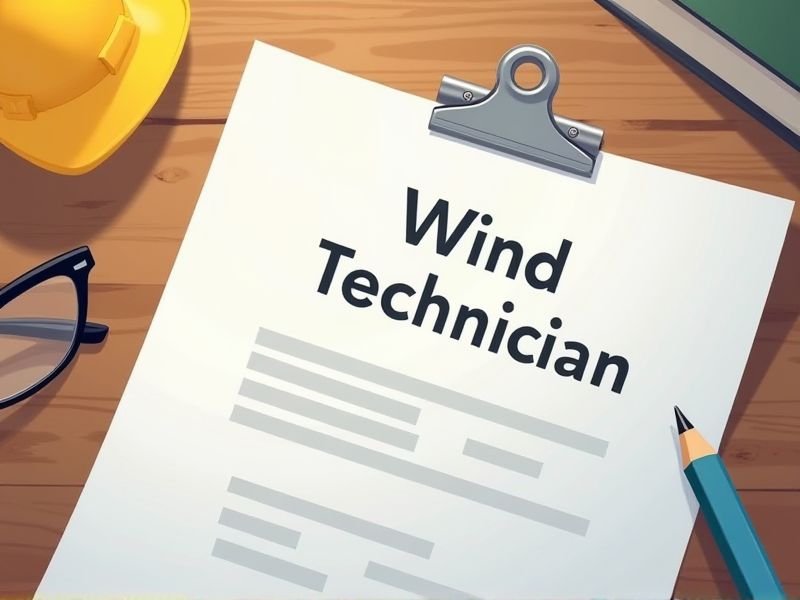
The role of a Wind Energy Technician involves handling complex machinery and advanced electronics within the wind power industry. Certifications ensure technicians possess the necessary expertise and safety knowledge to maintain and repair wind turbines effectively. Proper accreditation not only enhances proficiency but also satisfies regulatory and industry standards for operation and safety. Some important certifications required for a Wind Energy Technician include those focusing on electrical safety, tower rescue, and turbine maintenance.
GWO Basic Safety Training
GWO Basic Safety Training is essential for wind energy technicians because it ensures competence in dealing with emergency situations, reducing the likelihood of accidents. The training focuses on first aid, fire awareness, and manual handling, which are crucial for working in potentially hazardous environments. Wind turbines are often located in isolated areas, and immediate safety knowledge can be life-saving. Proper safety training contributes to a culture of safety, enhancing overall operational efficiency and reducing downtime due to accidents.
GWO Working at Heights
GWO Working at Heights training is essential for wind energy technicians to ensure their safety while performing tasks on tall wind turbines. The training provides knowledge and skills to properly use safety equipment, which reduces the risk of falls and injuries. OSHA data indicate that falls are one of the leading causes of fatal injuries in the energy industry, highlighting the necessity for such training. Awareness of emergency procedures learned in GWO courses can lead to quick response times during incidents, reducing potential downtime and operational disruptions.
GWO Manual Handling
Wind energy technicians often perform physically demanding tasks, including lifting heavy components, which makes manual handling knowledge crucial to prevent injuries. The GWO Manual Handling training equips technicians with techniques to move and lift safely, reducing the risk of musculoskeletal disorders. Injuries in the field can lead to significant downtime and economic loss, so advanced training enhances operational efficiency. Safe manual handling practices not only ensure individual health but also contribute to a safer work environment in the fast-growing wind energy sector.
GWO First Aid Training
Wind energy technicians need GWO First Aid Training to ensure safety, as they work in remote locations where immediate medical assistance might not be readily available. The training equips them with crucial skills to manage injuries and emergencies, reducing the risk of fatalities or severe injuries on-site. Understanding first aid procedures enhances team confidence and efficiency, fostering a safer work environment. Compliance with industry safety standards often mandates such training, ensuring technicians are prepared for potential hazards specific to wind energy operations.
OSHA 10-Hour Construction Safety Certification
Wind Energy Technicians work in environments that present numerous construction-related hazards, making the OSHA 10-Hour Construction Safety Certification essential to understand and manage risks effectively. This certification provides foundational knowledge in areas like fall protection, personal protective equipment, and proper tool usage, directly affecting worker safety. Understanding these safety protocols can reduce incidents and enhance operational efficiency on a wind farm. Employers often require this certification to ensure a standardized level of safety awareness across the workforce.
Electrical Safety Certification (NFPA 70E)
Electrical Safety Certification (NFPA 70E) is essential for wind energy technicians due to the high risk of electrical hazards associated with maintaining and repairing wind turbine systems. Proper certification ensures technicians are trained to handle live circuits, preventing fatal electrical incidents. It reinforces the importance of using correct personal protective equipment to mitigate shock and arc flash risks. Employers also require certification to comply with safety regulations and to minimize liability in case of workplace accidents.
Wind Turbine Technician Certification
Wind Turbine Technician Certification ensures technicians have the necessary skills and knowledge to safely maintain and repair turbines, reducing the likelihood of workplace accidents. Certified technicians tend to have a deeper understanding of turbine systems, leading to more efficient maintenance practices and reduced downtime. Many employers prefer or require certification, making it a crucial credential for job seekers in the competitive wind energy sector. Proper certification can also lead to higher wages, as it demonstrates a recognized level of expertise and commitment to the profession.
Lockout-Tagout (LOTO) Certification
Lockout-Tagout (LOTO) Certification is crucial for Wind Energy Technicians to ensure they safely de-energize turbine systems before performing maintenance, reducing the risk of electrical injuries. Wind turbines operate under high voltages, and without LOTO protocols, technicians face significant hazards, leading to potential fatalities. Proper certification equips technicians with the necessary skills to comply with OSHA standards, thereby minimizing legal liabilities for employers. In the fast-growing wind energy sector, LOTO training contributes to maintaining a reliable and safe work environment, promoting confidence in renewable energy solutions.
Renewable Energy Technician Certification
Wind energy technicians require Renewable Energy Technician Certification to ensure standardized knowledge across the industry. Certification enhances technical skills, which directly influences the efficiency and safety of wind turbine maintenance. With certified credentials, technicians are more likely to gain trust from employers and stakeholders, leading to improved job prospects. The certification process often involves the latest technological updates, which keeps technicians well-informed about current advancements in wind energy.
CPR and Emergency Response Certification
Wind energy technicians often work in remote locations where immediate medical assistance might not be available, increasing the necessity for CPR and emergency response skills. The physical demands and potential hazards of the job, such as falls or electrical injuries, heighten the potential for emergencies requiring swift medical intervention. Employers prioritize safety and compliance with occupational safety regulations, making such certification a standard requirement in the industry. Training in CPR and emergency response enhances team readiness and can minimize injury severity, protecting both individuals and company assets.
Summary
When you obtain certifications as a Wind Energy Technician, job opportunities in the renewable energy sector increase. Employers recognize your specialized skills, potentially leading to higher wages. Certifications can enhance your technical proficiency, ensuring better equipment maintenance and efficiency. Career advancement becomes more attainable, with prospects in supervisory or managerial roles.
